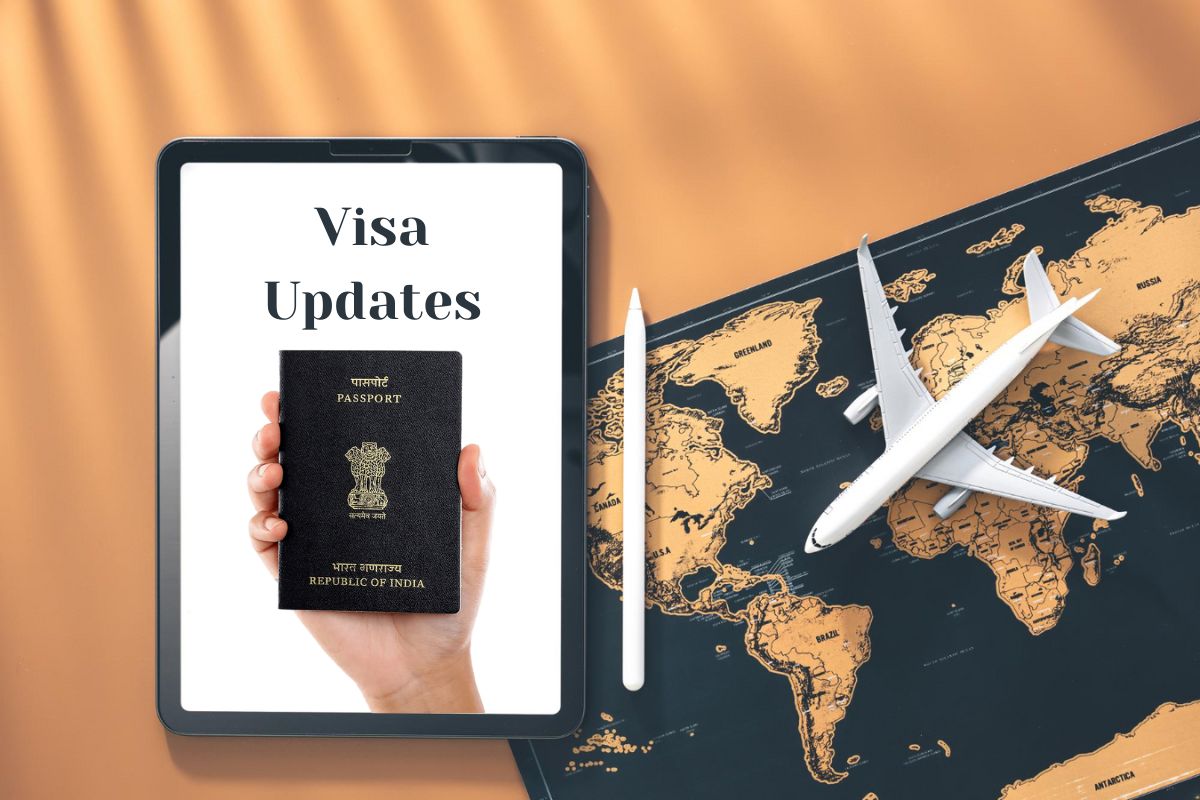
In recent months, a series of favourable changes in visa regulations have emerged, benefitting Indian passport holders and expanding their travel opportunities. From extended visit visas to enhanced e-visa validity periods, several countries are redefining their visa norms to accommodate the needs of Indian travellers.
This article explores the latest visa developments over the past few months, highlighting the progressive changes that have taken place.
7 Recent Visa Changes for Travellers
As these countries redefine their visa norms, the door to international exploration is swinging wider for Indian passport holders, promising more accessible and hassle-free travel experiences.
Let’s delve into the unfolding narrative of these recent visa developments that are reshaping the way Indian travellers traverse the globe.
1. UAE Extends Visit Visa Duration
Indian visitors to the United Arab Emirates (UAE) can now take advantage of an extended stay period. Travellers on visit visas who wish to spend more time with friends and relatives in the UAE can apply for a visa extension of 30 days.
This provision applies to 30, 60, and 90-day visas and can be processed through the UAEICP app. A fee of 750Dh or approximately ₹16,800 is applicable for this extension.
2. Russia Offers E-Visas for Indian Travellers
Indian passport holders now have the option to obtain e-visas for travel to Russia. The Ministry of Foreign Affairs website allows applicants to submit their requests up to 40 days before their intended trip. This e-visa is valid for 60 days and eliminates the need for extensive documentation regarding the purpose of travel.
It permits travellers to explore Russia for tourism, business, and participation in various events encompassing scientific, cultural, socio-political, economic, and sporting domains.
3. Saudi Arabia Introduces Instant E-Visas for Visa Holders
Visa holders with valid US, UK, or Schengen visas can now secure an instant e-visa to enter Saudi Arabia. This e-visa option offers an efficient alternative to the previous visa-on-arrival system.
To qualify for this streamlined process, travellers must have utilized their existing visa at least once and must present an entry stamp from the issuing country.
4. Vietnam Extends Tourist E-Visa Validity
Vietnam, a sought-after travel destination, is making it easier for Indian travellers to explore the country. The National Assembly of Vietnam has approved an extension of the tourist e-visa validity from 30 to 90 days.
This significant change empowers tourists to visit Vietnam multiple times within a three-month period, enhancing their travel experience
5. Egypt Offers Free Transit Visas for EgyptAir Passengers
Passengers flying through Egypt’s national carrier, EgyptAir, now have the opportunity to acquire a transit visa at no cost. This visa permits travellers to stay in Egypt for a duration ranging from eight to 96 hours.
The application process is facilitated upon arrival at the EgyptAir Transit Office within Cairo International Airport.
6. Indonesia’s Visa-Free Travel Ban Made Permanent
Indonesia, a popular destination for Indian travellers, has taken measures to formalize its visa regulations. The temporary suspension of visa-free travel during the pandemic has transitioned into a permanent policy. Indian tourists can continue to access Indonesia with a visa-on-arrival.
7. Increased Visa Fees for US Travel
Travelling to the United States has become slightly more expensive due to an increase in visa fees for business, tourism, and other travel categories. Effective May 30th, the visa fees for business and tourism (B1 and B2 categories) have risen from $160 (approximately Rs13,125) to $185 (approximately Rs15,176).
Conclusion
Recent developments in visa regulations have ushered in a new era of convenience and accessibility for Indian passport holders. With countries like the UAE, Russia, Saudi Arabia, Vietnam, and others revising their visa norms, Indian travellers now have more options to explore the world, whether for leisure, business, or cultural exploration.
These changes reflect a positive trend towards easing travel restrictions and fostering global connectivity.
